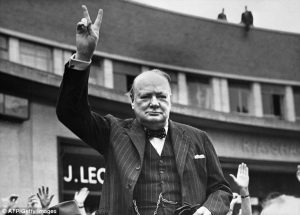The Imperial Political Elite Establishment’s Strategies for Protecting British Power
If not among the public, defence, foreign and colonial policy received considerable attention in the Labour Party. This was as a result of the emergence of two new super powers, the United States, with its possession of atomic weapons, and the Soviet Union, which would clearly have such weapons soon. Moreover, the Labour leader, Clement Attlee, had already been, even before the Second World War, speaking of Labour’s commitment to the ‘abandonment of imperialism’ in the colonies. This was partly because of the Labour’s colonial doctrine, and, therefore, it is essential to bring this to our attention. Although the economic pressures on the Labour Government were a principal cause of its post-war decolonisation policies, ideological factors played a leading role in influencing Labour leaders in formulating their policies.
“The Labour party always considered itself primarily a socialist party and only to a limited extent as Marxist. Its organization and doctrine grew out of the pragmatically oriented British trade-union movement and an old humanitarian Christian reform ideal, which at times entered a phase of social and political radicalism and took over the liberal inheritance. This characteristic tradition of the British working-class movement, which survived in years to come in spite of the adoption of some Marxist theories, also determined the Labour party’s colonial doctrine.”22
The British Labour party until 1914 did not have an anti-colonialist doctrine which could differentiate it from the continental socialist parties. “In 1900, led by Bernard Shaw and Sidney Webb, the Fabian Society even openly supported imperialism and rejected the pro-Boer attitude of leading liberals.”23 But, in the years which followed, Sydney Oliver, C.R. Buxton, Mary Kingsley and E.D. Morel’s influence, who represented the liberal or radical tradition, made itself felt. They were more interested in the actual situation in the colonies than in a theory of imperialism. They demanded more active reforms, to improve the lot of the native population, instead of the withdrawal of the colonial power. “Hobson provided the Labour party with a ‘doctrine’, since he interpreted colonial imperialism in economic terms; however, Hobson was not socialist nor even a Marxist, but a radical reformer who anticipated the concept of trusteeship in his demand for an ‘enlightened’ colonial policy.”24 During the first World War the Labour party had already adopted the mandate principle of future League of Nations and also made international control a focal point of its colonial programme. In this there were two aims: “to prevent a new rivalry for colonial acquisitions among the world powers, and to replace capitalist exploitation by a policy of reform which would ‘develop’ backward ‘people’ and prepare them for self-government”25
In addition to the two above-mentioned goals, not only did the Labour party want “a detailed formulation of the mandate principle and a well-defined system of international control; it was even more concerned with subordinating all the colonies to the League of Nations.”26 In the following years the Labour party demanded to extend the mandate principle to all European colonies. However, the SFIO (French Socialist party), unlike the British Labour party, was interested in assimilation and not self-government, which was the object of the mandate policy, and thus showed no interest in the British Labour Party’s initiatives.
Labour’s support for trusteeship and later the policy of ‘gradual grant of self-government’ helped to establish a certain basis of trust between the mother country and the nationalist leaders. Such an attitude did, to some degree, contribute towards creating the Modern Commonwealth – a Multiracial Institution.



